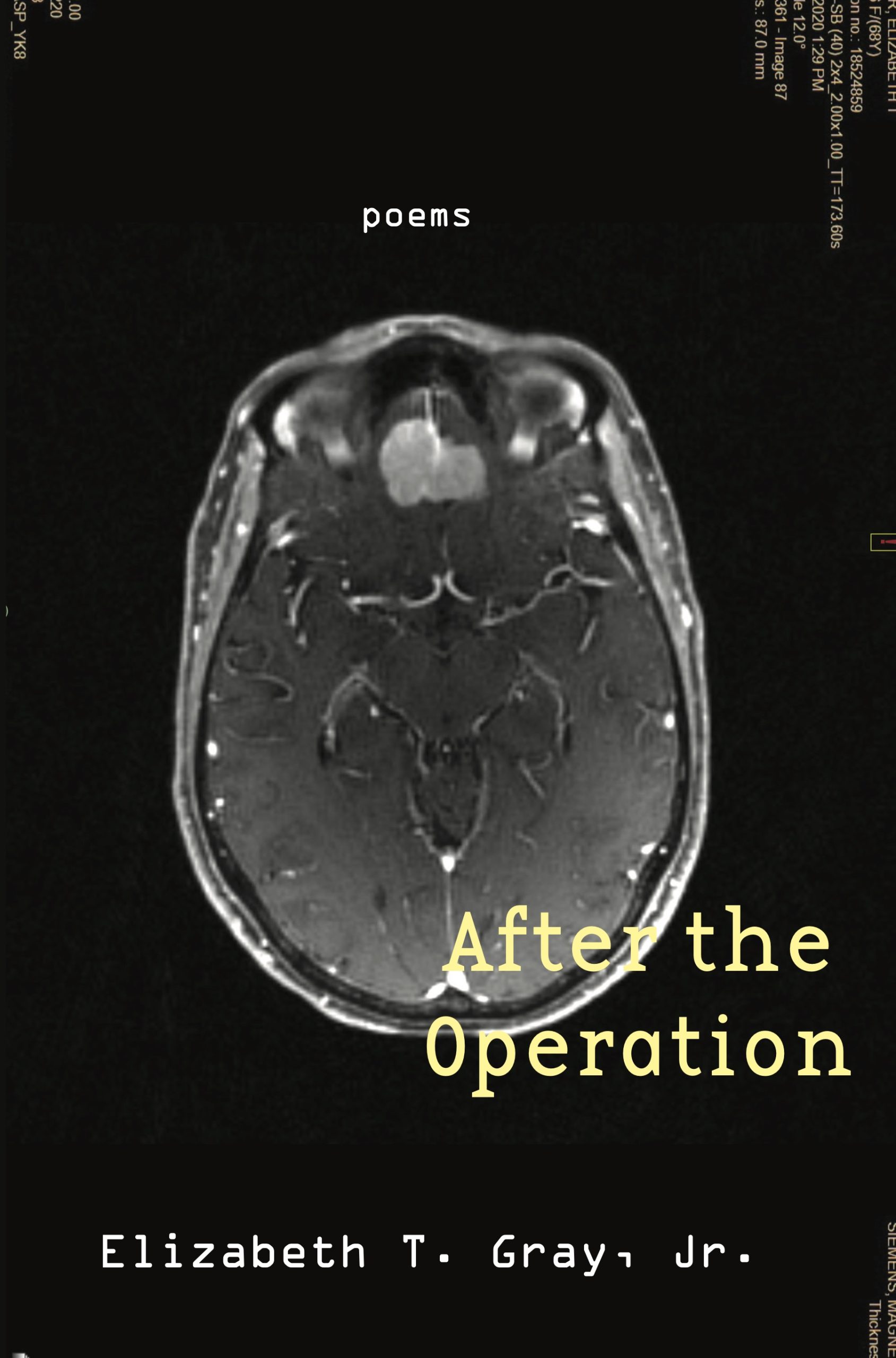
paper • 88 pages • 17.95
ISBN: 978-1-961897-40-3
eISBN: 978-1-961897-41-0
March 2025 • Poetry
Elizabeth T. Gray Jr.’s After the Operation reports from the No Man’s Land she wandered following eight hours of surgery to remove a brain tumor. What does the mind feel like after something has been taken out of your skull? “An uninhabited coast,” or “all shatter and thoroughfare?” These spare poems interweave medical documents, journal entries, and memories, assembling a polyvocal chorus to document the surgery itself and the recuperation process. The decentralized perspective of After the Operation allows the reader to see the procedure holistically—medically, from the doctor’s perspective; subjectively, from the author’s; and vicariously, from her caretakers’, family’s, and friends’—while approximating the disassociation the patient feels as she navigates unexpected cognitive and emotional side effects. Sometimes bleak but always gorgeous, After the Operation does us a great service in illuminating and articulating the complexities of a serious medical event. This tangible chronicle of Gray’s terror, isolation, bafflement, desolation, love, loss, relief and gratitude serves as a beacon for all of us who will one day, as Susan Sontag says, find ourselves dwelling in “the kingdom of the sick.” Gray makes valiant use of her citizenship there, asking, “When they come for you, when the unfamiliar roar comes, and a sudden opening, and light pours in, when what had kept you safe, what had always been, is breached, pried open, and light pours in, what do you want to have been writing then?” After the Operation is her triumphant answer.
From After the Operation
(After the operation,
intact abandoned
its nouns, the idea
itself fell
apart and was
last seen somewhere
in an enamel
bowl in pieces
next to a bone saw)
Elizabeth T. Gray, Jr. has compiled and written a notational narrative on things happening to, with, inside, and for her actual brain. She captures the polyphonies of body/memory, matter/ hallucination, past/present as probes into our various paths to knowledge—technical, emotional, and spiritual. This empathetic and exacting serial poem depicts a “self” who just experienced a reset of consciousness, along with a renewed shock of Being—still inexplicable and elusive.
Elizabeth Gray was 68 when she learned that the benign tumor below the frontal lobe of her brain had grown. After consultations with her doctors and family, she elected to have the tumor removed. If you think After The Operation sounds like it is going be clinical and dry, you are wrong. It is a book of drifting consciousness, of altered states, memory loss, and inescapable change. Birds show up at her window. She wonders what happened to the pieces of her skull that were removed. The doctor’s reports sound like they were written by Tristan Tzara pretending to be a medically trained bot. She reads the everyday world (or word), sometimes erroneously. She is surgically precise about the hazy state she experiences after what had been part of her goes missing. What else is left, she asks. Seeing the skull as a room that has been breached. She wonders (that word again) “what do you want to have been writing then?” The answer: “[this] lovely lotiform wishing-cup in translucent alabaster.”
After the Operation yearns to elevate rehabilitation into art. She goes about accumulating dreamlike fragments into a nest of images with the goal of doing more than telling a story or alleviating suffering. In fact, Gray draws on her skills as a translator in this volume…[and] acts as her own interpreter, translating the foreign tongue of her hallucinatory voyage to the Other side of consciousness — and back — into verse that records what was lost during the trip and what remains….For Gray, the neurological is also archeological.